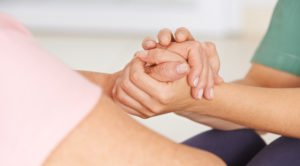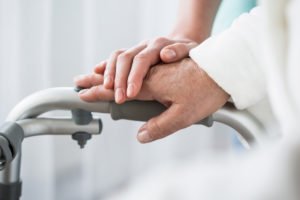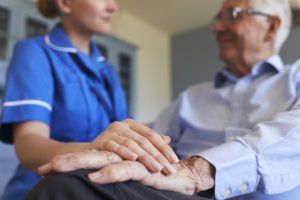
As defined by the National Institute of Justice (NIJ), elder abuse describes the intentional harming of an adult age 60 or older, be it through physical, psychological, or neglectful acts.
Types of Elder Abuse
A myriad of behaviors can constitute elder abuse, with the National Institute on Aging (NIA) listing the most common types:
- Physical abuse: Bodily harm or the threat of physical harm of an elder in a nursing home’s care or the care of a caretaker.
- Emotional abuse: Includes deliberate manipulation, cruelty, isolation, or psychological torture of an elder in need of care.
- Sexual abuse: Constitutes harassment of a sexual nature by a caregiver or forcing an unwilling elder to participate in a sexual act.
- Neglect: Constitutes ignoring an elder’s needs when they rely on another party for care. These needs can be medical, physical, or emotional.
- Financial abuse: When one party takes advantage of an elder’s mental or physical state to steal money, alter wills, change titles, and otherwise obtain possession of their property without consent or their understanding.
- Healthcare fraud: Includes filing fraudulent Medicare or Medicaid claims on the elder’s behalf or double billing for medical services.
Signs of Physical Abuse
When looking for signs of physical abuse in a nursing home or when an elder is under the care of a caretaker, the National Center on Elder Abuse (NCEA) explains that you should look for:
- Unexplained injuries
- Bruises
- Scars
- Broken bones
- Overdoses or missed medications
- Damaged belongings such as eyeglasses
- Signs of restraint
- Sudden change in behavior
Signs of Emotional Abuse
Signs that an elder may have suffered from emotional abuse at the hands of a caretaker include:
- Sudden onset of depression
- Avoidance of their caretaker
- Self-comforting, including rocking or thumb-sucking
- Fear or paranoia in the elder
Signs of Sexual Assault
Signs that an elder may have suffered from sexual assault at the hands of a caretaker or affiliated parties include:
- Fear or paranoia in the elder
- Unexplained vaginal or anal bleeding
- Damaged clothing
- Signs of restraint
Signs of Neglect
Neglect plagues many nursing homes and can result in wrongful death if not caught early. Signs of nursing home neglect include:
- Sudden weight or hair loss
- Dehydration
- Bedsores or soiled bedding
- Poor bodily hygiene
- Soiled clothing
- Unclean or unsanitary living conditions
Signs of Financial Abuse
Signs that nursing home staff have committed financial abuse include:
- Unusual withdrawal patterns
- Missing items noticed when visiting your loved one
- Abrupt changes in their will, power of attorney, or property titles
- Unexplained transfers of assets
Signs of Healthcare Fraud
Elders can fall victim to healthcare fraud if they must rely on a caretaker or another third party to manage bills and healthcare claims. Signs of healthcare fraud can include:
- Duplicate billing
- Falsifying claims to Medicaid or Medicare
- Over- or under-medication
- The contrast between inadequate care and fully paid bills
For a free legal consultation, call 800-712-9119
How Elder Abuse Could Occur
When you place your elderly loved one into a caretaker’s care, whether a nursing home or an in-home care provider, they become at risk for elder abuse due to their reliance on another person. That said, some senior citizens are at a higher risk than others, especially those who:
- Suffer from dementia or Alzheimer’s disease
- Need physical help to stand, sit, or otherwise move around their home
- Rely on a caretaker to tend to their finances
- Struggle to communicate their needs
Reacting to Elder Abuse
Before you reach out to a nursing home abuse lawyer to discuss elder abuse, you could speak with your loved one (if you are able) to develop a better understanding of the situation. When you do, you can:
- Find support through your community: After seeing signs of elder abuse in a facility or with a caretaker, reach out to other families with elders in the same nursing home or on the same care roster. Compare notes and form a collective that will stand up against the abuse.
- Check in with your elder: Keep in frequent contact with your loved one. This way, you can stay on top of new abuse incidents and provide your elder with an escape, if need be.
- Seek guidance with the local authorities or with a caretaker’s superiors: When it is safe to do so, check in with your caretaker’s superiors for reports on their behavior. If doing so would put your loved one in immediate danger, you can instead reach out to local law enforcement or the state health authority.
If you believe that a loved one may have suffered from abuse or neglect at their nursing home, you can speak with an attorney to determine what constitutes elder abuse in your case. An elder abuse lawyer with Ben Crump Law, PLLC, can help you explore your legal options. Call 800-959-1444 today for a free case review with a team member.
Call or text 800-712-9119 or complete a Free Case Evaluation form








